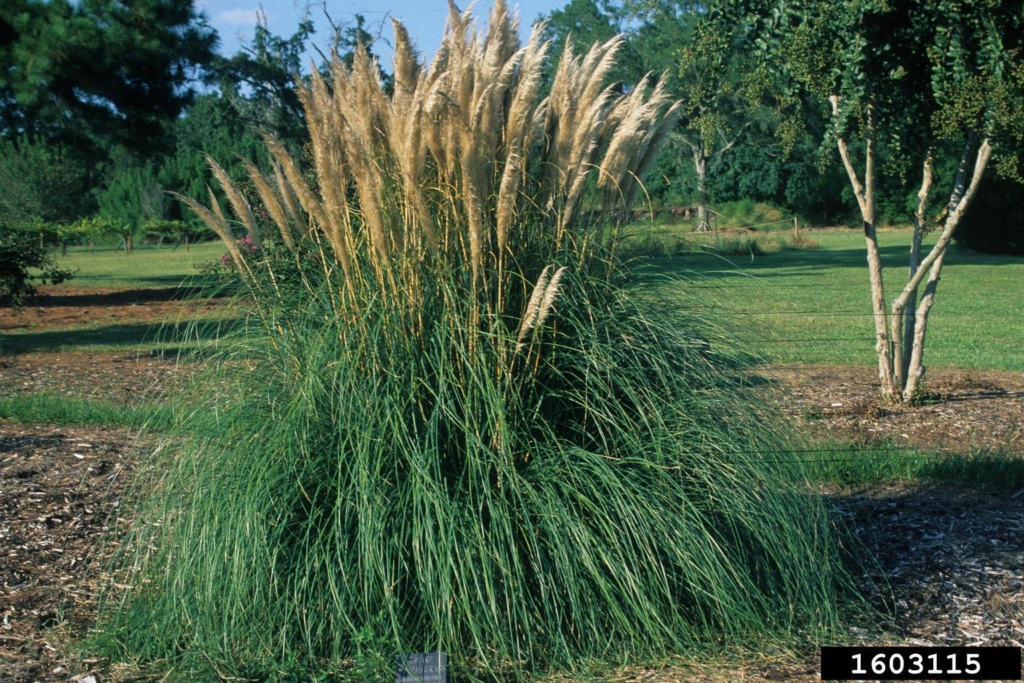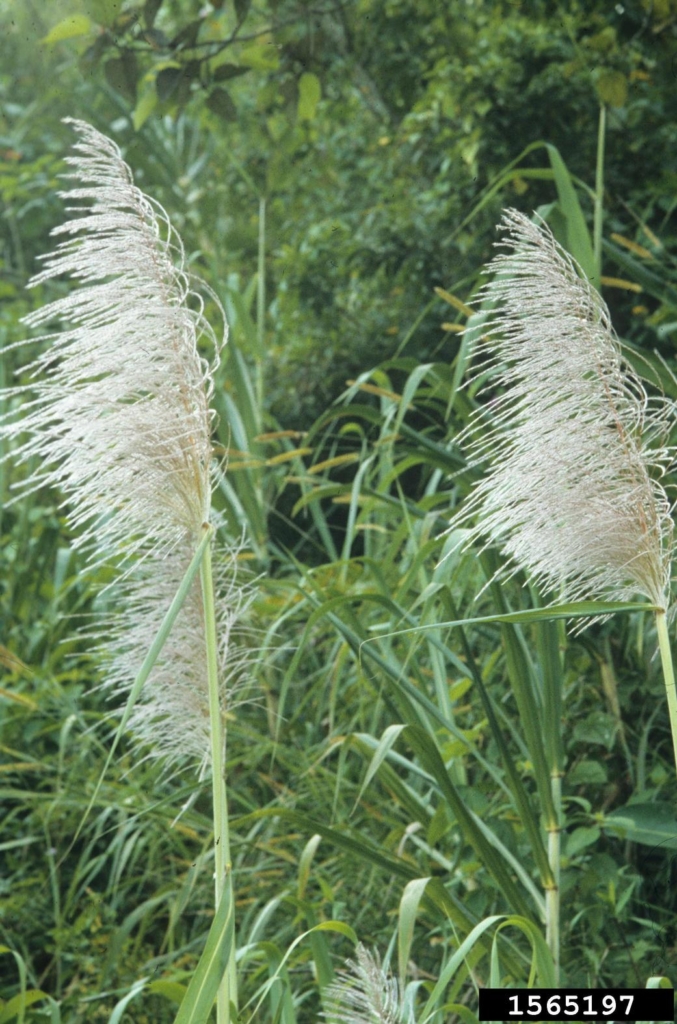Pampas or Jubata Grass
Cortaderia spp.
Plant Description
Perennial; leaves are long flat or folded basal leaves with sharp serrated margins. Leaves arise from tufted base. Tall flower plumes at end of very long stems. Pampas grass – silvery white (female) or pale violet (male) flowers with bluish-green leaves. Jubata grass – pinkish to deep purple flowering (asexual) with bright green leaves. Pampas grass has stems that are generally equal to or slightly longer than tufted base height. Jubata grass has stems generally at least two times as long as tufted base height. Junata is B-listed by ODA.
Plant Details
| Life Forms | |
|---|---|
| Habitats | |
| ODA Listing | |
| Soil and Moisture Conditions | |
| Suggested Actions | |
| Shade Preference | |
| Mature Height | 6-23' |
| Distribution | Mostly found along the coast of CA and southern OR. Found sporatically throughout the rest of the US. |
| Control | Pull seedlings, cut larger plants and remove root mass. Cut before seeds mature. |
| Disposal Methods | Turn uprooted plant upside down and leave in a dry place. Cover seed heads thoroughly to prevent wind dispersal. Alternatively bag seed heads and remove. |
| Reproduction and Spread | Female plants reproduce seed, thousands of which are identical to the parent plant and spread via wind. Can also spread vegetatively from tillers or fragments of mature plants into moist soils. |
| Introduced | Native to Argentina and the Andes. |
| Look Alikes | blue oat grass, Chinese silver grass, feather reed grass, muhly grass |
| Impact | Converts shrublands into grasslands, can prevent forest re-establishment in forests that have been burned or distrubed. Colonizes roadsides and graded areas. |
| More Info |
© Marion Soil and Water Conservation District. All Rights Reserved.


